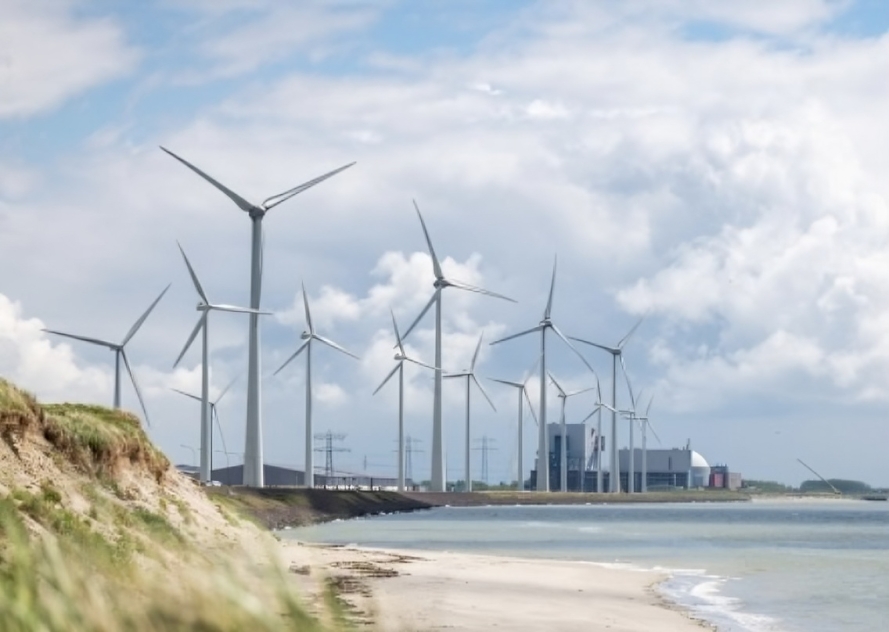KEY POINTS
- Despite several obstacles, Latin America hopes to become a major producer of clean hydrogen.
- The cost of clean hydrogen is still higher than that of gray hydrogen, which reduces demand.
- In the region, some 65 projects are in development, but more funding is required.
Latin America is placing itself in a position to become a significant producer of clean hydrogen because of its abundance of renewable energy resources. As the global race to decarbonize picks up steam, governments are eager to seize this chance. A full-scale clean hydrogen boom in the area is, however, hampered by major obstacles.
Production and pricing barriers
Clean hydrogen, sometimes referred to as green hydrogen, is a viable energy source in the fight against climate change because it is created carbon-free using renewable electricity. The switch from fossil fuels to renewable energy sources, such as hydrogen, has been highlighted by governments like that of Colombia, which is led by President Gustavo Petro.
Nevertheless, compared to gray hydrogen, which costs as little as $1 to $3 per kilogram, the high cost of clean hydrogen, which can reach $10 per kilogram in some places, presents a substantial barrier.
Although billions in finance from multilateral lenders have been committed to support clean hydrogen, further investments are still required. According to a World Economic Forum analysis, Latin America would receive investments totaling $6.1 billion in renewable energy, including hydrogen. According to Reuters, to reach its full potential, researchers estimate the business will need between $100 billion and $300 billion by 2030.
Delays in wind projects on the La Guajira peninsula of Colombia have impeded progress, in part because Indigenous tribes have refused to provide their assent. Lead energy specialist at the Inter-American Development Bank Christiaan Gischler states that Colombia’s competitiveness may suffer if these issues are not resolved.
Early-stage development projects
Approximately 65 clean hydrogen projects, mostly in their infancy, are currently under development throughout Latin America, despite the obstacles. There are 28 projects in development in Colombia, including a large-scale endeavor by the government-owned Ecopetrol. In line with its objectives for the energy transition, Petrobras, a company based in Brazil, is also planning two green hydrogen facilities.
Yet another area of concern is infrastructure. Gischler underlined that the cost of hydrogen may be lowered to $1.50 to $2.50 per kilogram, making it more competitive, by repurposing existing infrastructure, such as pipelines, or by building shared infrastructure.
In order to help hydrogen initiatives, Uruguay, Chile, and Brazil are concentrating on enhancing legislation and developing infrastructure. In an effort to promote the development of hydrogen, Chile is revising twelve rules; the Magellan Strait has been recognized as a possible hub for production because of its strong winds.
Demand in the industry and prospective customers
The absence of demand from regional industries is one of the main obstacles facing green hydrogen. Experts in the field, such as Monica Gasca of the Colombian Hydrogen Association, think that if European and Asian countries begin to enter into contracts for large amounts of hydrogen, then Latin American countries stand to gain greatly. For this reason, it is challenging for producers to obtain finance because local firms are reluctant to sign purchase agreements.
The CEO of Hevolucion, a Colombian developer, Diego Arboleda, emphasized that producers of hydrogen must actively seek out consumers. At a plant close to Medellin, Hevolucion aims to manufacture one tonne of clean hydrogen per day by November. The company also has plans to export green ammonia to Rotterdam as a trial project.
At its Haru Oni facility in Chile, HIF Global is generating clean hydrogen to make methanol for e-fuels. Clara Bowman, chief operating officer, emphasized that regulatory assistance is essential for drawing in clients since companies need guarantees that implementing new technology won’t make them less competitive.



